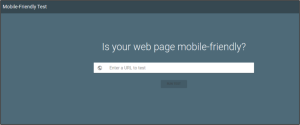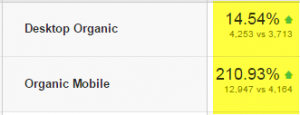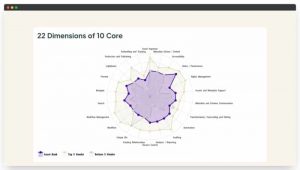August 06, 2024
This new journaling app is a surprisingly thoughtful writing partner
Rosebud is an AI-powered journal that asks questions, carries a conversation, and helps you work through your problems.
For those who make journaling a habit, it’s common to imagine the book itself as a listener—hence the classic refrain “Dear Diary.” But what if your journal could not only hear you, but also understand and respond to you?
That’s the concept behind Rosebud, an AI-powered journal that can ask questions, carry a conversation, remember patterns, and more. Rosebud founders Chrys Bader and Sean Dadashi launched the program’s first web-based iteration in July 2023. Today, after 12 months and a whopping 80 million words journaled, the app is coming to mobile on iOS and Android with new-and-improved features. It’s free to use, though it comes with an upgrade called “Bloom” that includes a number of add-ons for a $12.99 monthly fee.
In a media landscape rife with both AI doomsday narratives and overwrought claims about AI’s transformative potential, Rosebud stands out as an example of how people can use the technology for in a practical, day-to-day way. It’s not rewriting the rules of journaling or replacing therapy, and that’s the beauty of Rosebud: It’s offering AI as a way to help people with a task that’s uniquely human.

How Rosebud got its start
The idea for Rosebud started in 2017. Bader and Dadashi, who both have backgrounds in the tech world, met that year at a men’s group, which Dadashi explained to me as a space “where guys get together and talk about their feelings.” Dadashi had always journaled, but around that time, he started writing in his Notes app every day to work through his personal goals. “At that point, it was the first time that I realized, like, ‘Hey, I’m doing all this journaling, but there’s nothing that’s helping me make sense of everything that I’m writing,’” he says.
Dadashi considered whether AI could help pull meaning out of his entries, but the tech wasn’t advanced enough at the time. When he and Bader reconnected years later, though, it started to feel like a real possibility.
In early 2023, Bader and Dadashi realized they could use their interests in journaling to create a unique product that could help people reflect more deeply on their own journal entries. Their team built the foundation of Rosebud using existing chatbot models including ChatGPT, Claude, and Anthropic. The company’s unique IP comes from how its designers have trained the Rosebud chatbot—using both prompt engineering and data collection—to respond sensitively to users’ entries.
If writing your most personal thoughts into an AI-powered journal gives you pause, Bader understands. Rosebud’s team worked to ensure that anything people wrote would be secure behind layers of protection. Rosebud’s current privacy policy notes that the app does store data in the cloud to allow users to access their journals across multiple devices. The platform also collects some data including users’ registered email address, IP address, and browser type. When it comes to the contents of journal entries, though, that information is encrypted to ensure privacy. Secure Socket Layer (SSL) technology, which essentially scrambles information to deter hackers, is used to protect data as it travels between the user and Rosebud. The data is then stored using Google’s Firebase Firestore, which Bader describes as “a super-secure digital filing cabinet.”
“Firestore is ‘encrypted at rest,’ which means your data is encrypted even when it’s just sitting in storage,” Bader explains. “It’s like your journal entries are not only locked in a vault, but they’re also written in a secret code while in that vault.”

Training an empathetic AI chatbot
The first web version of Rosebud was a simple daily prompt based on the rose, bud, thorn evaluation technique, which typically involves reflecting on one good moment, one tough moment, and one thing to look forward to. Users would recall the highs and lows of their day, and the chatbot would follow up with relevant questions. Over time, Bader says, users started suggesting more features for the app—for example, rather than just asking questions, they wanted Rosebud to give them helpful feedback. So, the team behind the app worked with licensed therapists to train Rosebud to provide coaching and reflections.
While AI tech has gotten much more advanced in the past few years, it’s not without its faults. Google, for example, found itself in hot water after its AI Overviews started providing false information in its summaries, and Microsoft’s chatbot was disabled after users led it to espouse racist rhetoric. When chatbots are trained on huge swaths of data, it can be difficult to predict their responses. That’s why, for something as personal as a journal, it was important to Bader and Dadashi to fine-tune Rosebud’s training.
“One thing I’ll demystify is, some of the chatbots that are notorious for doing harm were built on previous technology. They weren’t built on the latest LLM technology,” Bader says. “We spent a lot of time simulating all sorts of different scenarios and evaluating the responses with therapists and getting their feedback to make sure that it’s responding in the most helpful way.”
One snag was Rosebud’s tendency to jump straight to solution-oriented suggestions instead of empathizing with the user first. If, for instance, a user wrote that they experienced shame due to their struggle with giving presentations at work, Rosebud might have immediately given pointers on improving at public speaking before helping them work through that associated shame. “We put effort into making sure that it doesn’t do that, to spend time understanding the user’s experiences, helping them articulate their experience and digging into it, and refraining from making any suggestions until they ask,” Bader says.
Another issue was personalization. While Bader and Dadashi emphasize that Rosebud is not a substitute for therapy, they believe it can function as a companion to the therapy process—and, as many know firsthand, no one therapist can fit everyone. Likewise, everyone’s imagined “Dear Diary” persona varies based on their goals, personality, and even religion. Rosebud users were looking for even greater control over their journaling experience and the ability to take it on the go. So, this February, the team went back to the drawing board to design a streamlined mobile experience.

My (brief) user experience
Last week, I gave the new app a three-day trial run. I am not a consistent journaler (before this, I’d written one entry all year). That said, I have aspirations of becoming one to cash in on the practice’s benefits. According to a 2018 study by Cambridge University, journaling about emotional experiences can boost both physical and psychological health, and a 2006 study published in The Arts in Psychotherapy found that expressive writing for 15 minutes a day can decrease anxiety and depression symptoms.
Before my first entry, Rosebud asked me a series of questions, from my relationship status to my age, occupation, and religion. Bader and Dadashi explained that my answers tailored how Rosebud responded to me. If I had recorded myself as Christian and cited that faith in my entries, for example, Rosebud might have used verses from the Bible in its responses. The chatbot learns about you over time and adjusts its responses accordingly. Rosebud also allows a frankly impressive level of customization—in fact, you can toggle between personality traits for the chatbot (like “Humorous” versus “Earnest”) or even write a comprehensive summary of how you’d like Rosebud to behave.
“One user said that they have a disability and they can’t do exercise,” Bader says. “So, the AI won’t suggest going for a run if they want to work on their physical health. Those types of things might not be obvious visual things, but it’s more of a felt experience.”
For those with the Bloom extension, Rosebud has a long-term memory that allows it to refer to details from past journal entries and point out behavioral patterns. Bloom also unlocks the ability to create custom journals and write using voice transcription.
Each morning, Rosebud asked me my goals and worries for the day. Based on my responses, it validated my feelings and asked follow-ups. On a day that I had several deadlines, Rosebud wondered how I typically manage time pressure. At the end of the week, the chatbot tactfully acknowledged my minor burnout before asking me to extrapolate on my weekend plans. As someone with experience in therapy, it felt almost uncannily similar to the approach that I’ve seen professionals take during sessions. And while I didn’t get a chance to try them, the app does offer guided prompts written by therapists who specialize in therapeutic modalities like CBT and ACT.
On Sunday, Rosebud collated a “weekly round-up,” which offered three top insights into my week as well as three “weekly wins.” Overall, I found the app’s UX intuitive and easy to navigate. While it’s a bit text-heavy at this stage, Bader and Dadashi noted that they’re working on more visual features.
Considering that Rosebud debuts on mobile today, it’s too soon to predict the specific hiccups that might emerge as users begin to engage with it. AI chatbots are not foolproof, and with an application that requires so much sensitivity, Rosebud is sure to make some missteps. As a first-time user, though, this felt like one of the most practical and marketable uses of AI since ChatGPT. As I’ve written before, companies like Google and Apple have a bad habit of framing AI tools as creative co-opters rather than creative helpers. But with Rosebud, the user is in the driver’s seat, and the AI tech is merely providing a bit of direction.
“While everyone was worried about AI becoming self-aware, we thought it was more interesting to see if AI could help us become more self-aware,” Bader says.

ABOUT THE AUTHOR
(5)
Report Post





